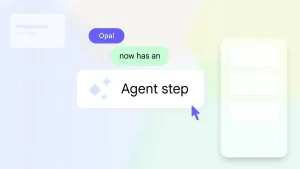Artificial Agency Raises $16M to Revolutionize NPCs in Gaming with AI

Artificial Agency, a startup from Edmonton, Alberta, is shaking up the gaming world. With $16 million raised, the company is developing an AI behavior engine intended to make non-playable characters (NPCs) more realistic. This innovative technology aims to enrich the gaming experience by creating NPCs that act and react more dynamically.
While many companies are exploring AI for more lifelike NPCs, Artificial Agency believes their approach will set them apart. They are leveraging AI to give game developers a tool that infuses NPCs with unique motivations and goals, resulting in more spontaneous and varied interactions. This advancement is expected to make games more engaging and less predictable.
Breaking Tradition in NPC Design
Artificial Agency has developed an AI behavior engine designed to revolutionize traditional video games. This new technology focuses on making non-playable characters (NPCs) more dynamic and realistic in their interactions with players. The aim is to improve the gaming experience by enhancing how NPCs behave and respond.
NPCs in most games are typically controlled by decision trees and pre-written scripts. This often results in repetitive and predictable behaviors, which can make the gaming experience feel mundane. However, Artificial Agency’s behavior engine changes this by requiring developers to provide each NPC with a set of motivations, rules, and goals. This means that NPCs can adapt and respond in a more varied and realistic manner.
Competing in a Crowded Market
The Edmonton, Alberta-based startup is diving into a competitive market, with companies like Inworld and Nvidia also working on AI-driven NPCs. But Artificial Agency is confident their approach will differentiate them from the competition. They are focusing on integrating AI-generated NPCs directly into game design.
Brian Tanner, co-founder and CEO of Artificial Agency, believes that their dynamic interaction system will soon become a standard in the gaming industry. Tanner states, “The conversations we often have with these studios are not about if, it’s about when. This sort of dynamic interaction and dynamic response that our system allows is going to be table stakes in the games industry just a few years from now.”
Funding and Support
Artificial Agency recently raised $12 million in a seed round co-led by Radical Ventures and Toyota Ventures. This brings their total funding to $16 million, including a previous $4 million in an undisclosed pre-seed round. Additional participants in the seed round were Flying Fish, Kaya, BDC Deep Tech, and TIRTA Ventures.
The funding will help Artificial Agency to further develop and refine their behavior engine. They are also collaborating with several notable AAA gaming studios to integrate their technology, expecting it to be widely available in 2025. The backing from these prominent investors highlights the confidence in the startup’s potential.
Challenges and Industry Hesitation
The rise of AI-driven NPCs raises questions about whether major gaming studios will adopt this new technology. Some studios might be tempted to develop similar technology in-house, while others might be cautious about integrating generative AI due to its potential risks and the fact that it is still relatively untested.
A significant survey by GDC and Game Developer found that nearly half of 3,000 game developers use generative AI in some capacity, mostly for repetitive tasks. However, there’s still a visible hesitation, as only 21% believe generative AI will positively impact the industry, and 42% express ethical concerns about its use.
A Demonstration of Potential
In a demo shared with TechCrunch, Artificial Agency’s co-founder Alex Kearney showcased an NPC named Aaron in Minecraft, powered by their behavior engine. Aaron was designed to be friendly and helpful, executing complex tasks without explicit programming.
For example, when asked to gather supplies for a mining adventure, Aaron collected armor, tools, and food from multiple locations and delivered them back. When informed of a dietary restriction, Aaron even found an alternative gluten-free food option. This demonstration highlighted the potential for creating more engaging and seamless NPC interactions in games.
The demo, which cost around $1 in AI inferencing costs, demonstrated the practicality and efficiency of using AI-powered NPCs. Artificial Agency expects these costs to decrease significantly with advancements in GPU efficiencies and AI model optimizations.
Cost and Accessibility
A critical question remains: who will bear the cost of these advanced NPCs? Co-founder Brian Tanner noted that while the cost of a five-minute demo is currently around $1, a year ago it would have been $100. He predicts that within another year, the cost could drop to one cent or less.
However, the issue of cost is still significant. Radical Ventures’ Daniel Mulet suggested that while game studios might be willing to license the technology, it could lead to additional costs for gamers. This could take the form of a monthly premium feature, with prices still to be determined.
Looking Ahead
Artificial Agency is betting on the decreasing costs and increasing adoption of their AI technology. They believe that as the technology becomes more affordable, it will become a standard feature in video games, enhancing the player experience and saving developers time.
The startup’s focus is not just on creating more realistic NPCs but also on fundamentally changing how games are developed and experienced. With continued support from investors and collaboration with major gaming studios, Artificial Agency aims to bring a new level of immersion and interaction to the gaming world.
Artificial Agency is poised to make a significant impact in the gaming industry. With $16 million in funding, they are developing an AI behavior engine to transform NPC interactions, making games more dynamic and engaging. As costs decrease and adoption increases, this technology could become a standard in video game development.
The company’s innovative approach and collaboration with major gaming studios highlight the potential for more lifelike and interactive gaming experiences. As Brian Tanner mentioned, dynamic interactions will soon become a standard feature. The journey towards more immersive and realistic NPCs is just beginning, and Artificial Agency is at the forefront of this revolution.





